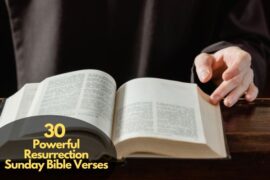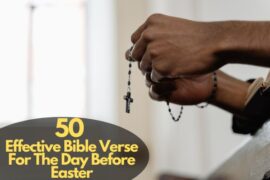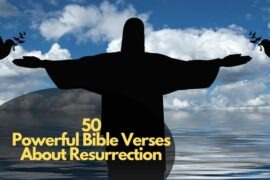Zebadiah is a significant figure in the Bible, known for his role as a prophet and priest during the post-exilic period of Israel’s history.
He is considered one of the twelve Minor Prophets, and his book in the Old Testament bears his name. The book of Zechariah contains a collection of prophecies and visions that Zebadiah received from God.
Through his prophecies, Zebadiah encouraged the people of Israel to repent of their sins and return to God. He also prophesied about the Messiah’s coming and Jerusalem’s restoration.
Contents
Zebadiah in the bible Family Background and Lineage
Zechariah’s book provides some information about Zebadiah’s family background and lineage. In Zechariah 1:1, we read that Zebadiah was the son of Berechiah, the son of Iddo, a priest in the temple in Jerusalem.
This places Zebadiah in the priestly line of Aaron, the first high priest of Israel. It is also worth noting that Zebadiah’s grandfather, Iddo, is mentioned in the books of Ezra and Nehemiah as one of the priests who returned to Jerusalem from Babylon with the exiles.
Zebadiah’s Role as a Prophet and Priest
As a priest, Zebadiah would have been responsible for offering sacrifices in the temple and performing other priestly duties.
However, God also called Zebadiah a prophet, which meant he was to deliver messages from God to the people of Israel. In Zechariah 1:1, we read that Zebadiah received a series of visions from God that he was to share with the people.
Zebadiah’s Prophecies in the Book of Zechariah
The book of Zechariah contains a collection of prophecies and visions that Zebadiah received from God. These prophecies are divided into two main sections: chapters 1-8 and chapters 9-14.
In the first section, Zebadiah addresses the people’s need to repent and return to God. He also speaks about rebuilding the temple in Jerusalem and the city’s restoration.
In the second section, Zebadiah prophesies about the coming of the Messiah, the triumph of God over his enemies, and the establishment of God’s kingdom on earth.
Zebadiah’s Message of Repentance and Restoration
One of the main themes in the book of Zechariah is the need for the people of Israel to repent and turn back to God.
Zechariah 1:3-4
“Thus says the Lord of hosts: Return to me, says the Lord of hosts, and I will return to you, says the Lord of hosts.”
Do not be like your ancestors, to whom the former prophets proclaimed, ‘Thus says the Lord of hosts, Return from your evil ways and deeds.’ But they did not hear or heed me, says the Lord.”
Zebadiah’s Vision of the Four Horns and Four Craftsmen
In one of his visions, Zebadiah sees four horns representing the nations that have scattered the people of Israel. However, he also sees four craftsmen sent by God to overthrow these nations and bring peace to the land.
Zechariah 1:18-21
“Then I looked up and saw four horns. I asked the angel who talked with me, ‘What are these?’ And he answered me, ‘These are the horns that have scattered Judah, Israel and Jerusalem.’ Then the Lord showed me four blacksmiths. And I asked, ‘What are they coming to do?’ He replied, ‘These are the horns that scattered Judah so badly that no one could even lift their head. But the blacksmiths are coming to terrify them and throw down these horns of the nations that lifted a horn against the land of Judah to scatter its people.'”
Zebadiah’s Vision of the High Priest and Satan
In another vision, Zebadiah sees Joshua, the high priest, standing before the angel of the Lord, with Satan standing at his right hand to accuse him.
However, the angel of the Lord rebukes Satan and declares that Joshua and his fellow priests are a “brand plucked from the fire” (Zechariah 3:2). This vision speaks to the idea of spiritual warfare and the constant battle between good and evil.
Zebadiah’s Prophecy About the Coming King
In Zechariah 9:9, Zebadiah prophesies the coming of the Messiah: “Rejoice greatly, O daughter Zion! Shout aloud, O daughter Jerusalem! Lo, your king comes to you; triumphant and victorious is he, humble and riding on a donkey, on a colt, the foal of a donkey.”
This prophecy was fulfilled when Jesus entered Jerusalem on a donkey just before his crucifixion (Matthew 21:5).
Zebadiah’s Influence on Christianity
In Christianity, Zebadiah’s prophecies point to Jesus as the Messiah. The New Testament quotes from the book of Zechariah several times, including the prophecy about the coming king riding on a donkey.
Additionally, some of Zebadiah’s visions, such as the vision of the high priest and Satan, foreshadow the role of Jesus as the ultimate high priest who intercedes for his people.
Zebadiah’s Legacy and Significance in the Bible
Zebadiah’s legacy and significance in the Bible are primarily tied to his role as a prophet and priest during a critical period in Israel’s history.
Through his prophecies and visions, Zebadiah encouraged the people of Israel to repent of their sins and turn back to God. He also spoke about the coming of the Messiah and the restoration of Jerusalem, providing hope and encouragement to the people.
In addition to his prophetic role, Zebadiah also served as a priest in the temple, performing the necessary sacrifices and rituals that were part of Israel’s worship of God. This dual role as prophet and priest highlights the importance of both aspects of Israel’s relationship with God.
Overall, Zebadiah’s book in the Old Testament provides a powerful message of repentance, restoration, and hope that is still relevant today. His prophecies and visions continue to inspire and encourage people of faith in Judaism and Christianity.
Zebadiah Meaning In the Bible
Zebadiah is a name that appears several times in the Bible, and its meaning is essential in both the Old and New Testaments. The name Zebadiah is of Hebrew origin and is pronounced: “Zeb-a-die-uh.” The name is made up of two Hebrew words: “zeb” meaning “gift,” and “yah,” meaning “God.” Thus, the name Zebadiah means “gift of God.”
In the Old Testament, Zebadiah appears as the name of several different individuals. The most prominent of these was Zebadiah, son of Asahel, who was one of the chief officers of King Jehoshaphat of Judah (2 Chronicles 17:7-8).
Zebadiah was a skilled warrior who commanded a force of 307,500 soldiers. He played a significant role in the battles fought by Jehoshaphat and was responsible for training and organizing the army.
Another Zebadiah mentioned in the Old Testament was a Levite who helped Ezra the scribe in rebuilding the temple in Jerusalem after the Babylonian exile (Ezra 8:8). Zebadiah, along with his fellow Levites, worked diligently to restore the temple, and they played an essential role in the spiritual revival of Israel.
In the New Testament, the name Zebadiah appears in the genealogy of Jesus Christ (Luke 3:24). Zebadiah is listed as one of the ancestors of Joseph, the earthly father of Jesus.
While Zebadiah is not a significant figure in the New Testament, his inclusion in the genealogy of Jesus underscores the importance of his name and the idea of a “gift of God.”
The significance of the name Zebadiah goes beyond its literal meaning. In the Bible, the idea of a “gift of God” is a recurring theme. From the creation of Adam and Eve to the birth of Jesus Christ, the Bible teaches that all good things come from God and that we are to be grateful for His blessings.
The name Zebadiah reminds us of this truth and encourages us to be thankful for God’s gifts.
The name Zebadiah has a rich history and profound significance in the Bible. As a name, it reminds us of the idea of a “gift of God” and encourages us to be thankful for the blessings we have received.
Whether we encounter the name in the Old Testament or the New, the message remains: God is the source of all good things, and we should be grateful for His provision.
Conclusion
Zebadiah is a significant figure in the Bible, particularly in the Old Testament. He is mentioned in several books, including Ezra, Nehemiah, and Chronicles, as a priest and a Levite who played an essential role in rebuilding the temple and restoring Jerusalem. Through his commitment to the service of God, Zebadiah served as a shining example of faith and devotion to future generations.
Zebadiah’s story is one of perseverance and dedication. Despite facing numerous obstacles and setbacks, he remained steadfast in his devotion to God and his work.
He played a vital role in rebuilding the temple, an important symbol of the restoration of God’s presence among his people. His leadership and commitment to the task at hand helped unite Jerusalem’s people and bring them closer to God.
Furthermore, Zebadiah’s example serves as a reminder of the importance of service and sacrifice in the life of a believer. His life was dedicated to the benefit of God, and he put his faith into action by working tirelessly to restore the temple and the city of Jerusalem. His example shows that true faith is not just about believing in God but also about living out that belief in practical ways.
Zebadiah’s story provides an excellent example of how faith and dedication can lead to significant accomplishments.
His commitment to serving God and his people inspires all who seek to follow in his footsteps, even in the face of adversity. As such, his story remains an essential part of the biblical narrative, reminding us of the power of faith and the importance of serving God in all that we do.








